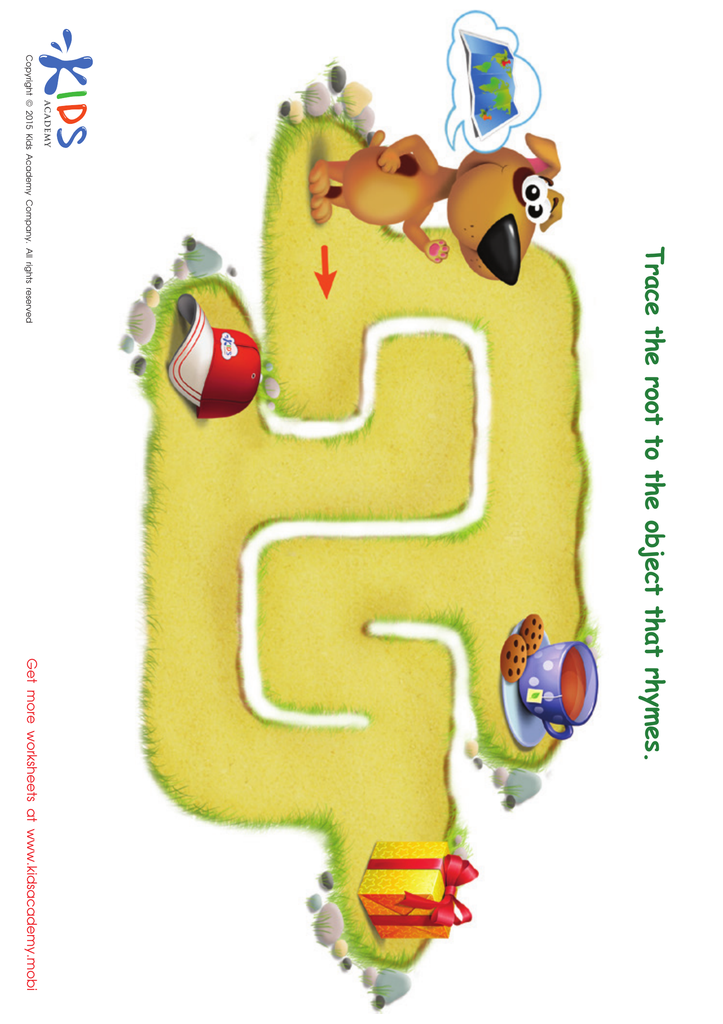Navigation basics Worksheets for Kids
1 filtered results
-
From - To


Map Rhyming Words Worksheet
Question/Answer
How to test a Kindergarten student’s Navigation basics skills?
To test a Kindergarten student's navigation basics skills, set up simple, real-life scenarios where the child needs to follow or give directions. Use a familiar environment, such as their classroom or playground, and ask them to move from one point to another by following basic instructions. Observe their ability to understand and apply concepts like left/right, forward/backward, and near/far.
How to train the Navigation basics skill in Kindergarten students learning about Rhyming Words?
To train the Navigation basics skill in Kindergarten students learning about Rhyming Words, create a simple rhyming word scavenger hunt. Place rhyming objects or picture cards around the room. Give students a word and ask them to find an object that rhymes with it. This activity encourages exploration and the connection of physical movement with rhyming word recognition.
What are some effective activities to train students’ Navigation basics skill when teaching them about Rhyming Words?
To train students in navigating through rhyming words, incorporate activities like "Rhyme Match," where they pair words that rhyme from a mixed list, "Rhyming Bingo" with cards filled with rhyming words, and "Rhyme Creation," where they create their own rhymes or poems. These interactive exercises enhance their ability to identify and generate rhymes effectively.





.jpg)






